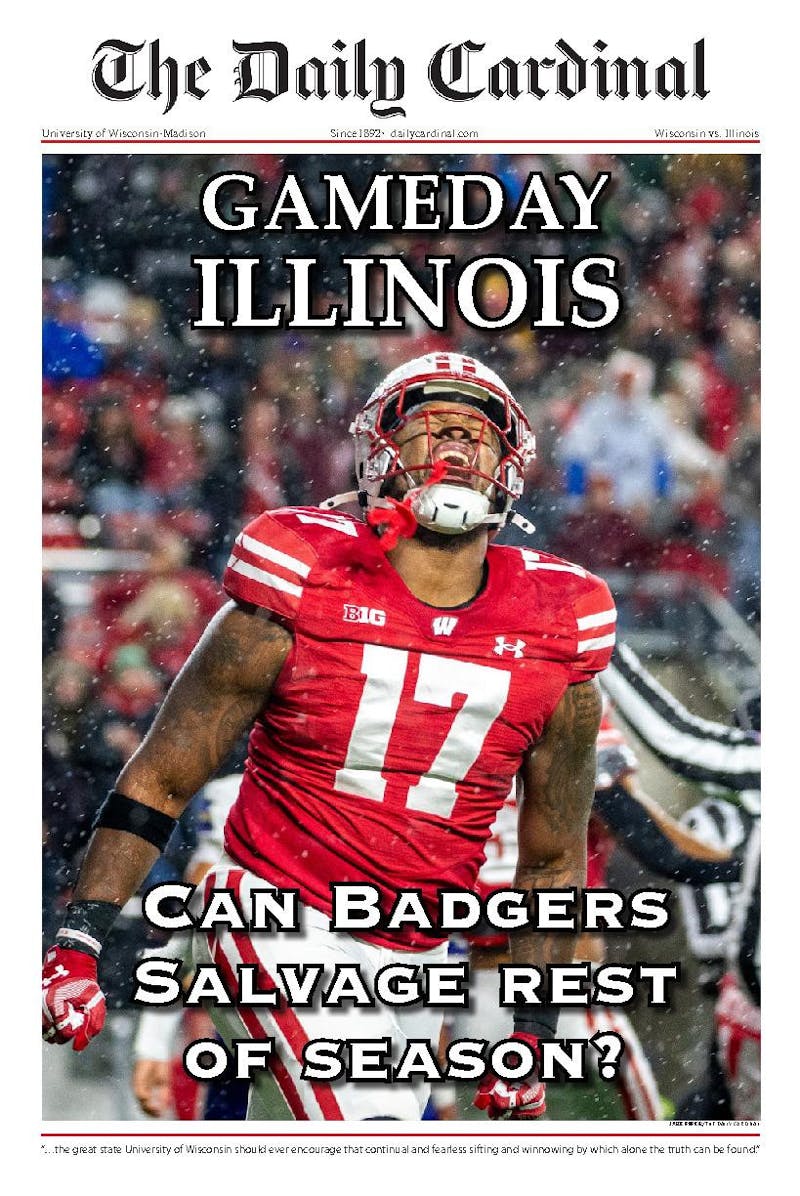Wandering out on one of the many snowfall-filled days at the University of Wisconsin-Madison this winter, one might see students slipping, buses getting stuck and plows working tirelessly to keep up. Students speculate what exactly it would take for classes to be canceled. The answer is a lot more complex than it may seem.
January 2019 was the last time UW-Madison students were allowed to stay home due to weather. The university called off classes because of “extreme cold,” an announcement read. Temperatures bottomed out near negative 40 degrees fahrenheit, and wind chills reached close to negative 60 in some areas, according to the National Weather Service.
This winter, Madison saw the most snowfall in one day since 2019, yet classes and regular campus events persisted.
Per UW-Madison policy, only the chancellor can officially cancel classes or otherwise close campus. There is no defined set of guidelines for snowfall or temperature in the policy, instead deferring decisions to the chancellor to cancel classes or close campus if the “safety and welfare of students and staff” is impacted.
Madison area schools have already canceled class four times this winter, most recently in late February, due to fear of icy conditions on roadways, the Wisconsin State Journal reported. This caused some UW-Madison students to wonder why they have to work their way through the tough conditions, when nearby public schools consider the conditions too dangerous.
A three-week-old petition to change the snow day policy led by UW-Madison sophomore Jenna Crawley has received nearly 650 signatures from the community as of Tuesday.
“When I posted the petition, it kind of confirmed what I was thinking — that everybody else was feeling the same way,” Crawley said. “A lot of people left comments saying that they have 20, 25 minute walks to class, and they feel super unsafe, or they've slipped and fell, or they almost got hit by a car. I think the biggest [factor] was when I saw an ambulance with a student lying on the ground with paramedics next to them. And upon asking around, I found out that they had slipped on the ice and broke their arm.”
Crawley is calling for a policy change at the university, seeking an added option for students to attend classes virtually during winter weather warning days.
“We know now that it is possible to have virtual days — we know that the university is capable of it because COVID just happened,” Crawley said. “I’m looking for an entire policy change that it should be required that all classes have a virtual option on severe winter weather warning days.”
Heavy snow causes a considerable impediment to buses, which particularly struggle with hilly conditions in the snowy weather. At the peak of a winter storm in December, nearly 20 buses were stuck on the roadways, Channel 3000 reported.
This means many student and employee commuters who rely on the bus to get to campus may not be able to get to class or work on time, if at all.
“I have gotten stuck [at home] as the buses stopped running during harsh weather,” Eagle Heights resident Jacob Hansen said.
Eagle Heights — a section of university apartments near Picnic Point — is located between one and two miles from the center of the UW-Madison campus.
“I’ve missed classes due to the cancellation of bus services in bad weather,” Hansen added.
The overall consensus among students who spoke to the Daily Cardinal was this — professors and instructors have been mostly understanding of students who are unable to make it to class on winter days, excusing absences, deciding to move classes to Zoom or providing other alternative means of attending classes. But as the winter season slowly winds down in Wisconsin, the ultimate decision of whether or not classes will continue on days with heavy snowfall remains with the chancellor.
As winter begins to wind down and spring approaches, the issue at hand will become mute until next winter. Will increasingly intense weather events eventually call for a change in policy?
Ian Wilder is a sports editor for The Daily Cardinal. He's covered the men’s hockey beat, and has written in-depth about state politics and features. Follow him on Twitter at @IanWWilder.






